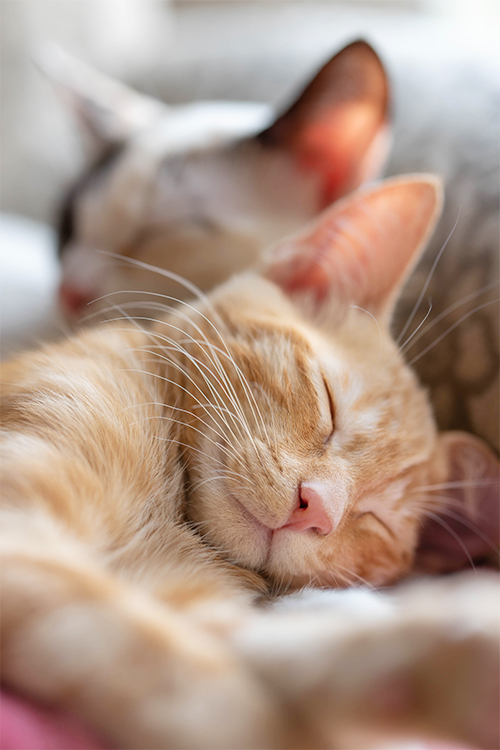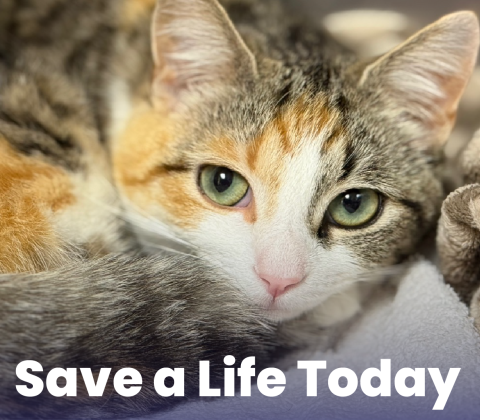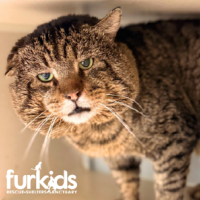
Our first instinct is to think that a cat outdoors is a stray cat. However, it is much more likely that the cat has a good home nearby and is just out for a stroll. How can you help decide what kind of help the cat needs?
First, determine whether the cat is in good body condition.
Does the cat look clean and well fed? Does the cat have clear bright eyes and shiny fur? If so, the cat likely has a family or caretaker.
IF THE CAT LOOKS HEALTHY, DO NOT TAKE THE CAT TO A SHELTER.
Does the cat look dirty, thin, or injured? Is there mucous in the nose or eyes? If so, the cat is likely lost, abandoned, or otherwise uncared for.
Next, take the cat to any vet to be scanned for a microchip.
This is free and the easiest way to reunite the pet with his owner. If the cat has no microchip, notify local shelters that you found a cat, and give them a good photo with a description and the exact location where the cat was found.
Post the cat on all social media sites.
Next Door, local Facebook groups, local lost and found pet Facebook groups, local veterinarian offices, and message boards are good places to start. Don’t forget Lost Pets Georgia.
Get the cat spayed/neutered if not yet sterilized.
Tens of thousands of cats are euthanized in Georgia shelters each year due to our pet overpopulation crisis. If the cat is pregnant, due to Atlanta’s massive pet overpopulation crisis, please get her spayed before she has a litter. Cats get pregnant as young as 4 months old!
 Keep the pet at least temporarily while you search for the cat’s family.
Keep the pet at least temporarily while you search for the cat’s family.
If the pet does not get along with your pets or children, it’s ok to keep them separated. Have all the pets been spayed and neutered? Pets that have not been fixed typically do not get along with spayed/neutered pets.
Most pets and/or children require an adjustment period. Given a little time and help, almost any pets/children can learn to coexist.
Fundamentally Feline explains how to introduce cats so that they live harmoniously together. www.positively.com offers advice on nearly every behavior issue.
IF YOU HAVE ALLERGIES
Consider taking allergy medicine. Millions of people with pet allergies have pets. Usually, one Zyrtec a day and regular washing of hands and bedding are enough to solve any issues. Studies also show that children who are exposed to pets early are much less likely to develop allergies later in life.
Re-home the cat
Ask friends, neighbors, co-workers, family, etc., and be patient. It might take a while to find the pet a new home. Click here to learn more about re-homing pets. Please be sure to screen potential adopters before placing the pet. Please do not post on Craigslist, where many pets fall victim to abuse.
IF THE PET HAS BEHAVIORAL ISSUES
Behavioral issues can often be managed through proper training. Make sure that all the pets are spayed/neutered. Otherwise, they often do not get along.
Fundamentally Feline explains how to help cats happily coexist, and Positively.com provides amazing tips for almost all pet behavior issues.
Try to find a no-kill rescue group.
Visit www.SPOTsociety.org to see a list of Atlanta rescue groups. Because of the huge pet overpopulation problem, Atlanta shelters stay full. These groups are usually made up of volunteers who are trying to save a lot of animals with very scant resources, so offer as big of a donation as possible to help cover food, shelter, and especially medical expenses. Please be patient when waiting for a return call; it might take a few days.
If you cannot find a suitable home for a stray cat found in your neighborhood
Allow the kitty to live outdoors and care for him/her (after having the cat spayed or neutered) while you continue to look for a home. FIV+ and FeLV+ cats can also safely be returned outdoors. For more information about FIV and FeLV, please email us at [email protected].
















_200_49.png)



_200_175_75.JPEG)










